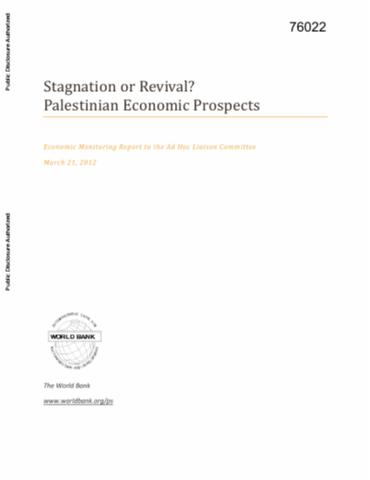The World Bank is a vital source of financial and technical assistance to developing countries around the world. We are not a bank in the ordinary sense but a unique partnership to reduce poverty and support development. The World Bank Group has two ambitious goals: End extreme poverty within a generation and boost shared prosperity.
- To end extreme poverty, the Bank's goal is to decrease the percentage of people living on less than $1.25 a day to no more than 3% by 2030.
- To promote shared prosperity, the goal is to promote income growth of the bottom 40% of the population in each country.
The World Bank Group comprises five institutions managed by their member countries.
The World Bank Group and Land: Working to protect the rights of existing land users and to help secure benefits for smallholder farmers
The World Bank (IBRD and IDA) interacts primarily with governments to increase agricultural productivity, strengthen land tenure policies and improve land governance. More than 90% of the World Bank’s agriculture portfolio focuses on the productivity and access to markets by small holder farmers. Ten percent of our projects focus on the governance of land tenure.
Similarly, investments by the International Finance Corporation (IFC), the World Bank Group’s private sector arm, including those in larger scale enterprises, overwhelmingly support smallholder farmers through improved access to finance, inputs and markets, and as direct suppliers. IFC invests in environmentally and socially sustainable private enterprises in all parts of the value chain (inputs such as irrigation and fertilizers, primary production, processing, transport and storage, traders, and risk management facilities including weather/crop insurance, warehouse financing, etc
For more information, visit the World Bank Group and land and food security (https://www.worldbank.org/en/topic/agriculture/brief/land-and-food-security1
Resources
Displaying 4081 - 4085 of 4907Stagnation or Revival?
This report begins by documenting the Palestinian Authority's (PA's) ongoing fiscal crisis that threatens its ability to provide basic services to the population. In 2011, the PA required about US$1.5 billion dollars in budget support, of which US$200 million to cover development expenses not funded directly by donors. However, it only received about US$814 million in budget support and US$169 million in development financing, for a total of US$983 million.
Transport on a Human Scale
An efficient and affordable access to
jobs, education and services is considered a fundamental
element for development. However, the mobility conditions in
the cities have deteriorated because of the increasing
motorization and urbanization. The number of new cars that
enter the cities every year outpaces the construction of new
roads, aggravating the existing congestion issues.
Therefore, the urban models that revolve around highways and
Introducing Energy-efficient Clean Technologies in the Brick Sector of Bangladesh
This study's objectives are: (i) to
present the pros and cons of existing and alternative brick
technologies in Bangladesh with specific focus on pollution
and energy efficiency; (ii) to estimate the private and
social benefits of these technologies (iii) to summarize
China's experience in the development of the brick
industry, as the world leader brick producer and (iv) to
provide concrete recommendations for adopting cleaner
The Demand for, and Consequences of, Formalization among Informal Firms in Sri Lanka
The majority of firms in most developing
countries are informal. The authors of this paper conducted
a field experiment in Sri Lanka that provided incentives for
informal firms to formalize. Offering only information about
the registration process and reimbursement for direct
registration costs had no impact on formalization. Adding
payments equivalent to one-half to one month's profits
for the median firm led to registration of around one-fifth
Light Manufacturing in Africa :
Targeted Policies to Enhance Private Investment and Create Jobs
The World Bank's strategy for
Africa's future recognizes the central importance of
industrialization in Sub-Saharan Africa, and the consequent
creation of productive jobs for Africans, which have long
been a preoccupation of African leaders and policy makers.
This book represents an attempt to address these issues. The
book stresses that, while the recent turnaround in
Africa's economic growth is encouraging, this growth







